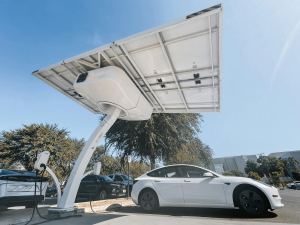
Solid-State Batteries: The Future of Energy for the USA
As the world shifts toward sustainable energy solutions,Solid electrolyte are at the forefront of technological advancements, particularly in the electric vehicle (EV) industry. These innovative power sources are revolutionizing the way we think about energy storage, offering numerous advantages over traditional lithium-ion batteries. For companies, consumers, and technology enthusiasts in the USA, solid-state batteries are the key to unlocking longer-lasting, safer, and more efficient energy solutions.
What Are Solid-State Batteries?
Solid-state batteries differ significantly from the traditional lithium-ion batteries found in most devices today. The key difference lies in the electrolyte. While lithium-ion batteries use a liquid or gel-based electrolyte, Energy storage utilize a solid electrolyte. This seemingly small change makes a big impact, resulting in a battery that is safer, more energy-dense, and better suited for long-term use.
For long-range electric vehicles, this advancement in energy storage technology is groundbreaking. Solid-state batteries can hold more charge and maintain their performance over a longer distance, solving one of the main issues that EV manufacturers have faced — limited range. As more drivers in the USA turn to electric cars, the demand for reliable, long-lasting batteries grows. Energy density are poised to meet this demand by offering a higher energy density, meaning electric vehicles can go farther on a single charge.
Solid-State Batteries vs. Lithium-Ion: A Comparative Look
The comparison between solid-state batteries and lithium-ion batteries often comes down to a few key factors: energy density, safety, and longevity.
- Energy Density: Rechargeable batteries have a higher energy density than lithium-ion batteries, which means they can store more energy in the same amount of space. This is crucial for EVs, where space is limited and the need for efficient energy storage is paramount.
- Safety: One of the significant benefits of battery lifespan is their enhanced safety. Lithium-ion batteries are prone to overheating and, in rare cases, catching fire, due to the liquid electrolyte. Solid-state batteries eliminate this risk with their solid electrolyte, making them a safer option for large-scale use, particularly in electric vehicles.
- Longevity: Battery innovation offer longer life cycles than lithium-ion batteries. They can withstand more charge and discharge cycles before degrading, which translates to fewer replacements and longer-lasting devices.
As the EV industry in the USA continues to grow, the benefits of solid-state batteries will play a crucial role in its expansion. Their ability to support long-range electric vehicles and enhance safety makes them an ideal power source for the future.
Advanced Battery Materials Powering the Future
One of the key factors driving the performance of sustainable energy is the use of advanced battery materials. Traditional lithium-ion batteries rely on materials like lithium cobalt oxide, which can be expensive and environmentally harmful. In contrast, solid-state batteries can utilize a range of materials that improve energy density and stability while being more sustainable.
Research into battery technology advancements is accelerating in the USA, with many scientists and engineers focusing on developing new materials that can further enhance the performance of solid-state batteries. These innovations are not just important for electric vehicles but also for a wide range of applications, from portable electronics to large-scale energy storage systems.
Leading US Battery Manufacturers
The USA is home to several US battery manufacturers at the forefront of developing solid-state battery technology. Companies like Quantum Scape, Solid Power, and others are investing heavily in research and production facilities to bring solid-state batteries to market. These companies are pioneering innovations that could soon replace traditional lithium-ion batteries in electric vehicles and other high-demand applications.
The involvement of US manufacturers in this field is crucial not only for advancing the technology but also for ensuring that the USA remains a global leader in the energy storage industry. As demand for affordable energy storage systems increases, American companies are positioning themselves to meet the needs of both domestic and international markets.
Benefits of Solid-State Batteries for Consumers and Industries
The benefits of solid-state batteries extend beyond just electric vehicles. Here are some key advantages that make them an attractive option for consumers and industries:
- Higher Efficiency: With a higher energy density, solid-state batteries can provide more power in a smaller space. This is ideal for EVs but also beneficial for portable devices like smartphones, laptops, and medical equipment.
- Improved Safety: The absence of flammable liquid electrolytes reduces the risk of fires and explosions, making Next-generation batteries safer for a variety of applications.
- Longer Lifespan: Solid-state batteries have a longer lifecycle, meaning fewer replacements are needed over time, reducing long-term costs.
- Sustainability: With the use of advanced battery materials, Battery development are more environmentally friendly than traditional options, contributing to a greener future.
For industries, solid-state batteries offer a reliable, cost-effective energy solution that can power everything from industrial machinery to renewable energy systems.
The Future of Affordable Energy Storage Systems
As the technology matures, the cost of producing solid-state batteries is expected to decrease, making them a more affordable energy storage system for both individuals and businesses. Currently, the main challenge lies in scaling production to meet growing demand. However, with the rapid pace of battery technology advancements, it won’t be long before solid-state batteries become the standard for a wide range of applications.
In the USA, where the push for clean energy and sustainable transportation is stronger than ever, solid-state batteries offer a promising solution. From electric vehicles to renewable energy grids, the potential for solid-state batteries is immense. As more companies and consumers recognize the advantages of this technology, the shift away from traditional lithium-ion batteries will accelerate.
Conclusion
Solid-state batteries are not just the future of electric vehicles; they represent a significant leap forward in energy storage technology. With their higher energy density, improved safety, and longer lifespan, they are poised to revolutionize how we power everything from cars to consumer electronics. As the USA continues to lead in battery technology advancements, solid-state batteries will play a pivotal role in shaping a sustainable, energy-efficient future. Whether you’re an EV enthusiast or simply interested in cutting-edge energy solutions, solid-state batteries are a technology to watch.
